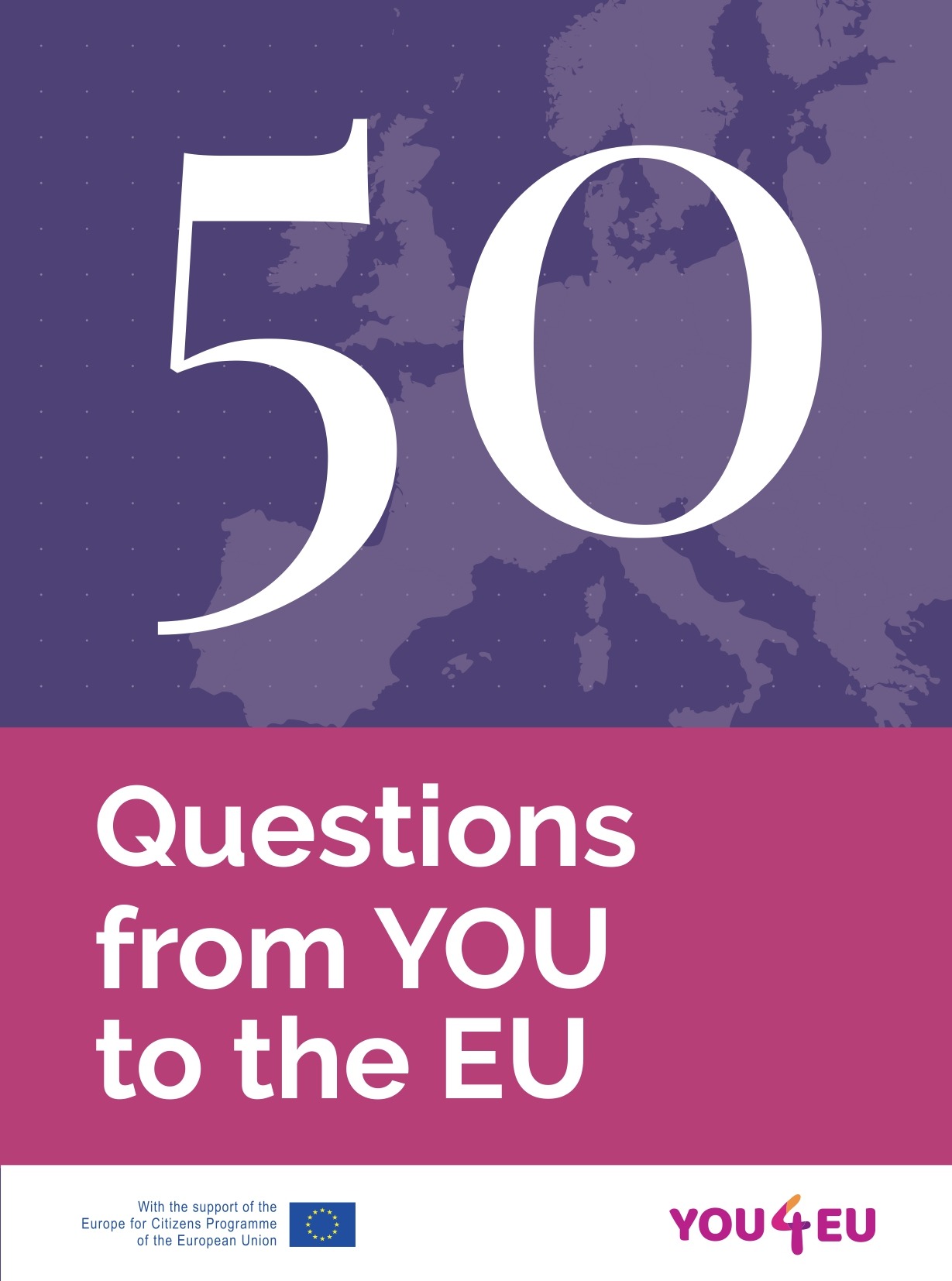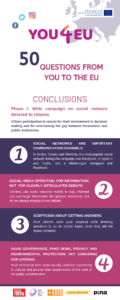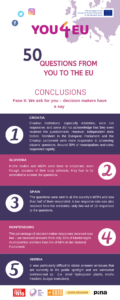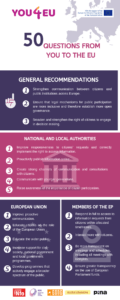Madrid, 10 October 2019 – National governments, the European Union and elected officials across Europe are failing to respond to communications from citizens. A study published today by Access Info and partner organisations reveals, something that must be addressed with urgency if trust in the political system is to be restored.
The report “50 Questions from YOU to the EU” sets out how more than 200 citizens from five countries suggested over 300 questions about the future of Europe, which were then sent to public authorities, MEPs and parliamentarians. The questions related to topics of concern, ranging from the 2019 EU elections to environmental protection to fake news to good governance. Of 600 questionnaires sent, only 181 answers were received.
A particular problem identified by the research was the failure of policy makers to use channels of communication most likely to reach young people, in particular the lack of responsiveness via social media.
“Our research identified widespread scepticism about whether citizens’ questions would get any answer, a scepticism which was justified. That is a serious problem!” said Helen Darbishire, Executive Director of Access Info, one of the five NGOs that carried out the study.
“We call on public institutions and elected representatives across Europe to listen and to communicate directly with citizens via the channels of communication that most are familiar with. It is not sufficient to rely on more formal participation processes” concluded Darbishire.
The main recommendations contained in the “50 Questions from YOU to the EU” report are:
- Governments must improve communication with citizens using relevant channels: Public institutions should proactively communicate using relevant tools. Social media can be used for civic participation. Facebook was the most popular network during the campaign in Croatia, Serbia and Slovenia. In Montenegro it was Instagram and Facebook, and in Spain it was Twitter.
- Public officials should respect citizens’ right of access to information. Governments must also ensure that access to information laws are in line with the Council of Europe Convention on Access to Official Documents.
- The European Union should inform better about what it is, how it works, what its values are and how it benefits citizens. European institutions should develop programmes that actively engage a broader spectrum of the public in discussions with decision-makers.
- MEPs should be more active in their personal interactions with citizens, respond requests for information from citizens in a short period of time and in full, and be fully transparent about their meetings and schedules, including all meetings with lobbyists, and the use of funding received from the European Parliament.
The partners in the project, “YOU4EU – Citizen Participation 2.0″ are Access Info Europe (Spain), Belgrade Open School (Serbia), Gong (Croatia), Institute Alternative (Montenegro), and PiNA (Slovenia).
One of the main goals of YOU4EU Project is to promote citizens’ participation and to provide them with tools and communication channels so they can ask questions to public authorities and representatives. It also aims to bridge the gap between citizens and directly elected deputies who must listen to the interests and needs of those who they represent.
Access the publication: “50 Questions from YOU to the EU”.
You can also consult the conclusions and recommendations addressed to the political authorities of the European Union, as well as to the national and local governments of the Member States, by clicking on the images below.




